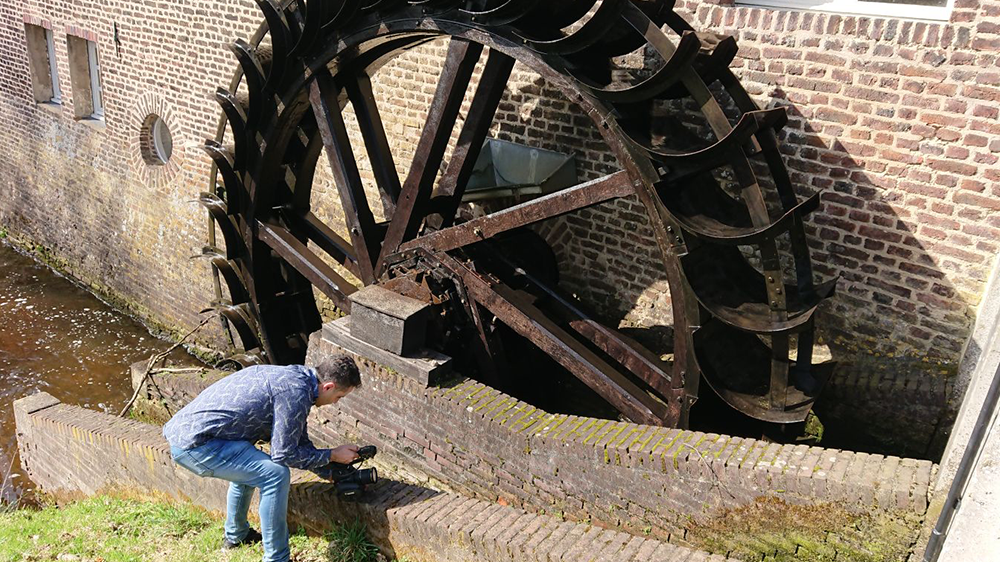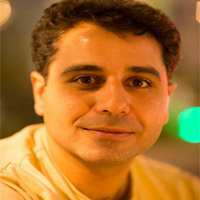عُرف المراسل الصحفي بكونه مؤرخ اللحظة باعتبار أن الحدث الحاصل أو المُرتقَب الحصول هو ميدان عمله، وانحصرت مهنته بشكل أساسي في تغطية الأحداث السياسية والرياضية والاقتصادية والفنية، ولكن ظلت مهمته تقتصر على الانفعال بالأحداث وملاحقتها، أي أن عمل المراسل كان منفعلا إلى حد كبير وليس فاعلا في مجرى الأحداث إلا فيما ندر. هذه الحالة جعلت الهم الأول للصحفي هو السباق مع الأحداث للحصول على ما كان يعرف بالسبق الصحفي ليلمع نجمه في عالم الصحافة، وهذا الذي ما لم يعد عليه حاله اليوم بسبب فقدان بريق السبق الصحفي أمام صحافة الاستقصاء، فعصر السبق انتهى وبات عمل الإعلاميين وسطوع نجمهم مرهونا بحجم قدرتهم على اكتشاف زوايا غير مطروقة ومتنوعة في محيطهم.
يبرز الفرق واضحا بين الإعلام كمهنة والإعلام كحب اكتشاف ومغامرة شيقة تُمتع الصحفي أولا ثم يمتع ويفيد متابعي الأحداث، فإعلام المهنة يجعل من عمل الصحفي والإعلامي الموظف محصورا في غرفة الأخبار أوفي عمله في الميدان، كمراسلي المكاتب الداخلية والخارجية، ويجعله يرصد الأخبار والتغطيات. وحالة هؤلاء تحدد مهمتهم في رصد الأحداث والانفعال بها، وتجعلهم يلهثون خلف الحدث الذي يُحكم عليهم القيادة ويقودهم في تغطيتهم دون أن ينفكوا من نيره، مما يجعل تغطيتهم محصورة بصانعي الأحداث من السياسيين والفنانين والاقتصاديين ومتابعة أخبارهم وتصريحاتهم، في حين يتحرر المراسل الحر من دوامة الأحداث تلك والغرق فيها. فهذا الأخير لا يعنيه الحدث إلا بقدر ما هو أمر تقتضي الإشارة إليه ثم ينتقل للبحث عن زوايا جديدة فيه. والأهم في الصنف الثاني من الصحفيين هو من يستطيع خلق قصته من لاشيء وصناعتها من ألفها إلى يائها عبر التنقيب في الواقع كمن ينقب عن الذهب، وهنا يبرز المراسل الحر بصفته صانعا للأحداث فاعلا فيها وليس تابعا لها أو منفعلا بها، ويبرز بصفته منتجا صاحب بصمة تتميز بها المحطة الإعلامية، وليس مجرد رقم وظيفي فيها. وبالطبع يقتضي الأمر وجود مديرين ومنتجين يتنبهون لعمله ويبرزونه في نشراتهم ويشجعونه على اكتشاف المزيد.
الأخبار كصناعة ومنتجات
بكل تأكيد لا أقصد أن يكون كل الإعلاميين في الوسائل الإعلامية كذلك، فالعاملون في الحقل الإعلامي أيضا كغيره لديهم قدرات متفاوتة على رصد واقعهم واكتشاف زواياه، ولكن المطلوب من وسائل الإعلام -فضائية كانت أو رقمية- اكتشاف قناصي الأحداث ومنقبي الذهب أولئك ليقدموا وجبات إخبارية رشيقة وممتعة ومفيدة في آن معا.
ففي عالم الأخبار تُعدُّ أغلب الأحداث في مطابخ الوسائل الإعلامية الكبرى وتتبعها باقي المحطات لدرجة أنها تبدو مجرد ببغاء يكرر ما تكرره، فتتشابه الشاشات في التغطيات وتختلف في ترتيب أولويات بعض الأخبار حسب الخط التحريري، أو غايات الدولة التي تدعم المحطة، أو رأسمال مالكها بعد أن سقطت مقولة "حيادية الإعلام" سقوطا مدويا. وهكذا فإن البصمة الأهم التي يجب أن تسم عالم إعلام اليوم هو عبر إيلاء الأهمية الأكبر لتقارير "الفيتشر" (تقارير القصص الإنسانية) و"الفيرست بيرسون" (تقارير من منظور الشخص الأول) وتقارير اللايت (تقارير المنوعات)، فهي التي تميزها وتضفي الحيوية والحياة على شاشة المحطة وتصنع لها هوية مستقلة عن النمطية التي نشاهدها على كل الشاشات التي أصبحت تتشابه ليس فقط في تغطية الأخبار، وإنما حتى في برامجها التي تعالج فيها خلفيات الأحداث المعدة مسبقا أساسا.
هذه التبعية اليوم باتت تقود كثيرا من غرف الأخبار بعبودية قاسية لا ترحم، حيث الكبير يبتلع الصغير ويستبعده ويجعله لا يخرج عن القالب الجامد الذي يضعه فيه، تماما كالسرطان الذي يسخر خلايا الجسم لخدمته وخدمة توسعه وانتشاره المخيف.
ولأن عصر اليوم هو عصر "الإعلام الاجتماعي" (السوشيال ميديا)، وليس عصر "الإعلام السياسي أو الاقتصادي"، فإن المحطات الإعلامية باتت تواجه خطر انحدار متابعيها أمام سطوة "إعلام وإعلاميي فيسبوك وتويتر وسناب شات ويوتيوب وغيرها"، فهذه الوسائل التي تخلق نجومها من الناس العاديين، صارت كابوس المحطات التي تصرف ملايين الدولارات لتحقيق جزء يسير من المتابعة التي يحققها أولئك. تلك المحطات فقدت اليوم الانتشار الواسع مع أنها تبذل جهودا مضنية للمحافظة على جمهورها الذي احتاجت سنوات طويلة للاستحواذ عليه، في الوقت الذي يستخدم فيه شباب بسطاء كاميرا الهاتف المحمول وبها يستحوذون على جمهور من أبناء جيلهم، يجلسون أمام الكاميرا ويتكلمون عن مواضيع بسيطة، فيصنعون من أنفسهم نجوما يتابعهم مئات الآلاف.
أمام هذه الدوامة يبرز دور المراسل الحر متحررا من الإعلام كوظيفة، ليدخل ميدان الإعلام بصفته منقبا عن الذهب في واقع تتعقد علاقاته أكثر وأكثر كل يوم، ليكشف للناس عن جوانب لم يكونوا يرونها.
في عصر الإعلام الاجتماعي، تبرز أهمية تقارير القصص الإنسانية، والشخصية، والمنوعات، التي كانت تعتبر ثانوية في نشرات الأخبار. كما أنها تتقدم اليوم بفوارق كبيرة جدا من حيث المتابعة على باقي الأحداث، لتحتل بشكل لافت المركز الأول في الاستحواذ على اهتمام المتابعين وحصد آلاف بل ملايين المشاهدات. فهذه الأنواع من التقارير تضفي العمق حتى على الأحداث المطروقة بتسليط الضوء على جوانب جديدة منها، وتلطِّف من قسوة عالم أخبار اليوم، فهي تقارير قريبة جدا من حياة الناس وتجعل أي شخص بطلا، إذ لكل شخص حكاية يرويها، ويستطيع الصحفي المتمرس في هذا النوع من التقارير أن يجعل من أي قصة حدثا، عبر قدرته على اكتشاف الأشخاص وزوايا حيوية من شخصياتهم ليجعل منها حكاية.
لنتذكر أنه في السابق، اعتمد أبو الفلسفة اليونانية سقراط على طريقة توليد الأسئلة، حيث تمكن بقدرته الفذة على طرح الأسئلة أن يجعل من كل شخص يسأله فيلسوفا، عبر إيقاظ العقل النقدي والتحليلي والاستنباطي القابع عميقا في العقل البشري. فكذلك المراسل الحر للتقارير الإبداعية يمكنه أن يجعل حتى الأشخاص العاديين يكتشفون زوايا جديدة في شخصياتهم تستحق أن تكون حكايات يستمتع بها الناس ويستفيدون منها. والميزة الأهم في هذه التقارير أنها تقارير حية دائما يمكن عرضها في كل زمان وفي أي مناسبة، لا تنتهي بانتهاء الأحداث كما هي حال أخبار اليوم التي تنسى ولن يعود من المناسب طرحها لاحقا. أما تقارير القصص الإنسانية، والشخصية، والمنوعات فيتلقاها الناس اليوم وبعد عشرين عاما بنفس الشغف والحب لأنها قصص قريبة منهم ومن رحم واقعهم.
قد يهتم بأخبار القتل والحرب ناس في بقع جغرافية مختلفة، ولكن تسليط الضوء على إنسان مغمور لا يعرف القراءة والكتابة مثلا، ولكنه يتمتع بمهارات أخرى كالرياضة أو الاختراع أو الرسم، سيكون لافتا لأن قصته تدغدغ حب الشهرة والتميز في نفس المتلقي فيقول في نفسه: "وأنا أيضا يمكن أن أكون مميزا ومحورا لحدث إعلامي، وليس فقط المشاهير".
بات لسان حال الجماهير العريضة التي أخذت تستغني شيئا فشيئا عن شاشة التلفاز بشاشة الهاتف الذكي؛ يقول إن نشرات القنوات التلفزيونية والإذاعية باتت نعوتا للموتى أكثر منها رصدا للأحداث، في وقت تستطيع فيه تقارير القصص الإنسانية والمنوعات أن تضفي الحياة على نشرات الأخبار. بيد أن هذه المعادلة لن تحقق نجاحا إلا عندما يتحرر مديرو الأخبار ومنتجو النشرات من تقييدات تقاليد العمل الإعلامي الصارمة التي تقيدهم كما تتقيد العائلة المالكة البريطانية بتقاليدها التي باتت تثير سخرية الكثير من الناس.
وإن عُرف الصحفي من قبل بكونه مؤرخ اللحظة، فإن الصحفي اليوم هو قناص اللحظة، يعرف تماما بعينه الثاقبة وبصيرته الإبداعية؛ أن بعض اللحظات يمكن أن تتحول إلى دقائق جميلة ومفيدة، وأن بعض الأشخاص العاديين من غير السياسيين المشاهير هم أبطال حقيقيون يستطيعون تغيير واقعهم، أو يضفون عليه قيمة مضافة، ويستحقون أن يكونوا حدثا يتابعه الناس. كل ذلك يخدم المحتوى الإعلامي ويضفي عليه الثراء والغنى من الواقع الحقيقي للناس.









































